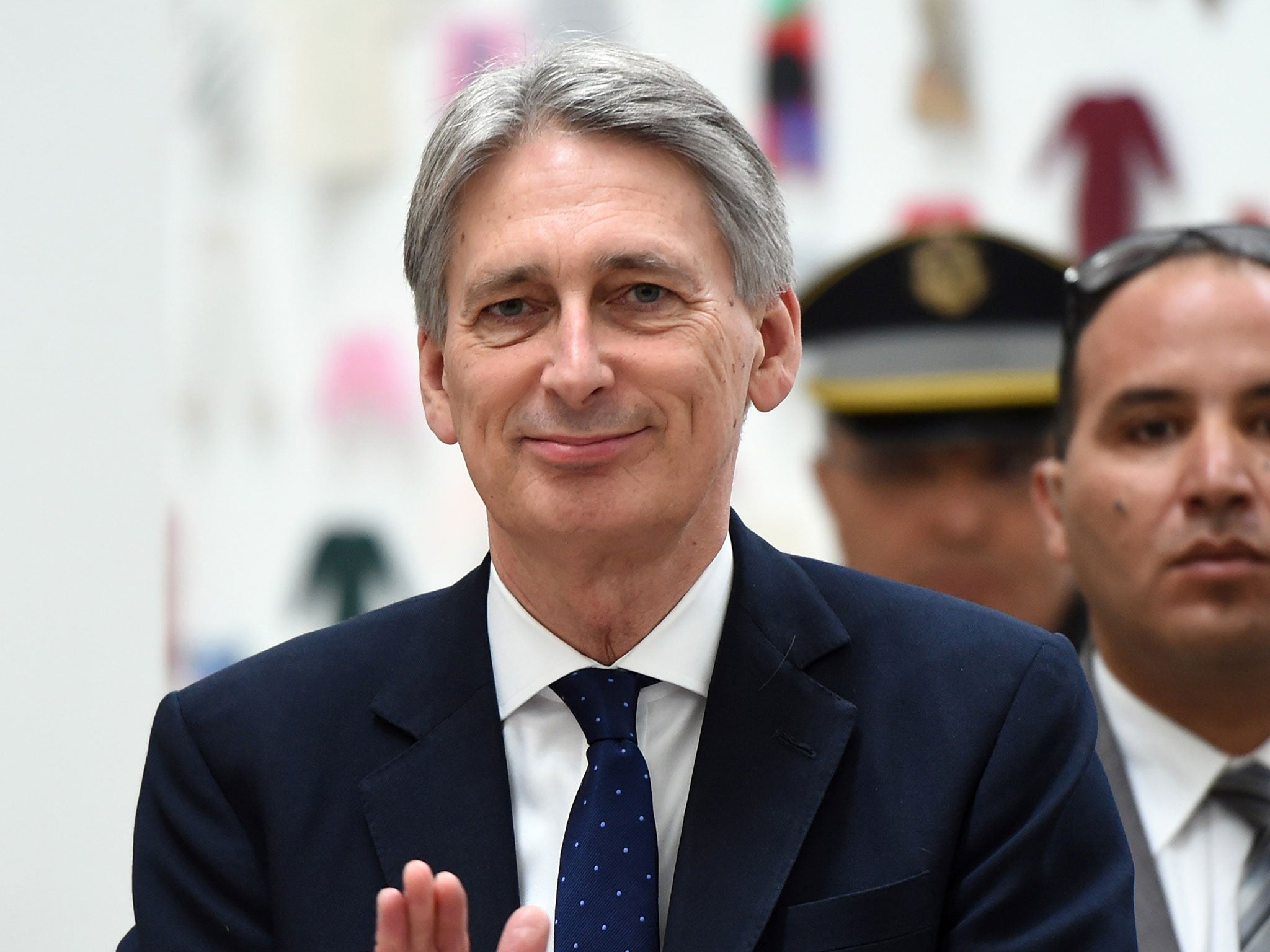Foreign Secretary Phillip Hammond 'close to condoning' Saudi executions
Mr Hammond described those executed as 'convicted terrorists'

Your support helps us to tell the story
From reproductive rights to climate change to Big Tech, The Independent is on the ground when the story is developing. Whether it's investigating the financials of Elon Musk's pro-Trump PAC or producing our latest documentary, 'The A Word', which shines a light on the American women fighting for reproductive rights, we know how important it is to parse out the facts from the messaging.
At such a critical moment in US history, we need reporters on the ground. Your donation allows us to keep sending journalists to speak to both sides of the story.
The Independent is trusted by Americans across the entire political spectrum. And unlike many other quality news outlets, we choose not to lock Americans out of our reporting and analysis with paywalls. We believe quality journalism should be available to everyone, paid for by those who can afford it.
Your support makes all the difference.The Foreign Secretary Philip Hammond has been accused of “coming dangerously close to condoning” the wave of executions of alleged terrorists carried out by Saudi Arabia which have inflamed tensions across the Middle East.
The Government has faced fierce criticism for failing to condemn more forcefully the killing on a single day of 47 prisoners, including the prominent Shia cleric Sheikh Nimr al-Nimr.
To the anger of human rights groups, Mr Hammond yesterday described them as “convicted terrorists”.
The execution of Sheikh Nimr, an outspoken critic of the Saudi regime who denied advocating violence, provoked a diplomatic crisis between Saudi Arabia and Iran.
Mr Hammond said on BBC Radio 4 that it was sensible for Britain to “relentlessly” condemn the use of the death penalty but to accept that some countries would not abandon it. Asked if he would offer a tougher condemnation of the executions, he replied: “Let’s be clear that these people were convicted terrorists.”
Pressed on whether the Government treated the Saudi regime “with kid gloves” because of its economic and security importance to the UK, he replied: “It is much more complicated than that.
“We are clear we condemn the use of the death penalty and we make that view very well known.
“But we also understand that Sharia law calls for the use of the death penalty and the reality is however much we lobby countries like Saudi Arabia and Iran... they are not going to end the use of the death penalty.
“So we are much more effective if we focus our lobbying on cases where we might make a difference.”
He said he had urged his Saudi counterpart in talks last year to cancel mass executions and added: “Just for the record, Iran of course executes far more people than Saudi Arabia does.”
In response to The Independent’s disclosure that Saudi Arabia had been omitted from a Foreign Office list of priority countries where it would encourage the abolition of the death penalty, he said: “This was a list, I understand from 2011. We were clear in our most recent human rights report in our condemnation of the use of the death penalty.”
Saudi Arabia’s ambassador recently warned of “potentially serious repercussions” of a breakdown in relations with the UK and complained of a lack of respect for its strict system of Sharia.
Maya Foa, the head of the death penalty team at human rights group Repreive, said Mr Hammond appeared “alarmingly misinformed”.
She said: “Far from being ‘terrorists’, at least four of those killed were arrested after protests calling for reform and were convicted in shockingly unfair trials.
“The Saudi government is clearly using the death penalty, alongside torture and secret courts, to punish political dissent. By refusing to condemn these executions and parroting the Saudis’ propaganda, labelling those killed as ‘terrorists’, Mr Hammond is coming dangerously close to condoning Saudi Arabia’s approach.”
Amnesty UK’s head of policy and government affairs Allan Hogarth said: ”Contrary to what Mr Hammond says, there is nothing complicated about this. The death penalty is wrong in all circumstances – no ifs or buts – and that’s a universal principle to which the UK claims to subscribe.”
Philip Hammond (left), with Defence Secretary Michael Fallon in Japan yesterday, called the executed men ‘convicted terrorists’ EPA
Join our commenting forum
Join thought-provoking conversations, follow other Independent readers and see their replies
Comments